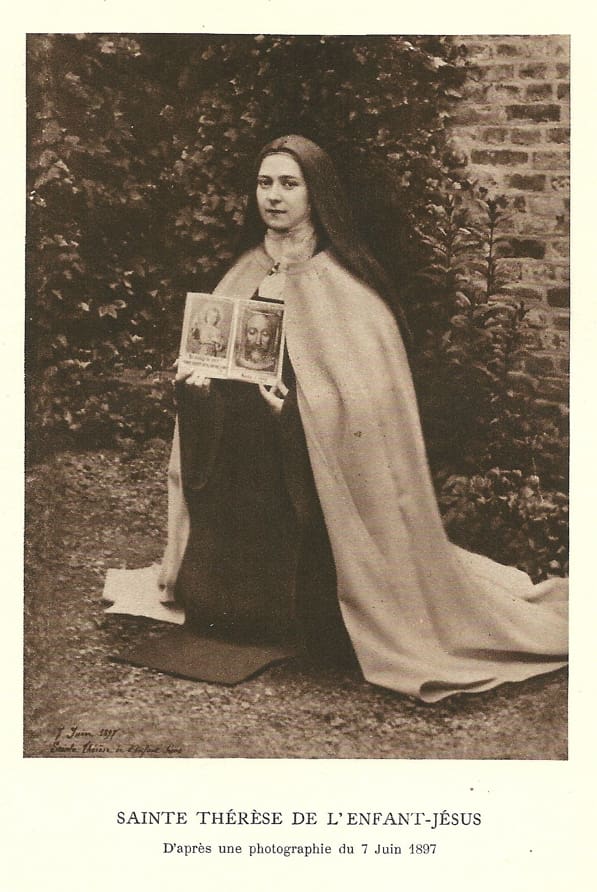Not Excusing Oneself
Presence of God – O Jesus, who willed to be silent before him who condemned You to death, teach me the art of not excusing myself.
MEDITATION
In any failure, fault, or personal error, our ego instinctively tries to excuse itself. It is the tactic  of pride–which is not willing to admit its mistakes and schemes–to hide them under more or less false pretexts, always finding some way to blame them on other people or on circumstances. Adam and Eve acted in this way after their sin; it is also the instinct of anyone who commits a fault. Herein lies great danger for the soul, because it is impossible for us to correct our faults if we are not willing to acknowledge them. It requires great courage to tear down these ingenious but inconsistent constructions of self-love, to expose our failings and look them squarely in the face, just as they are, without blaming them on anyone but ourselves. “When we commit a fault,” said St. Thérèse of the Child Jesus, “we must not attribute it to a physical cause, such as illness or the weather, but we must attribute it to our own lack of perfection…. Occasions do not make man weak, but they do show what he is” (Counsels and Souvenirs).
of pride–which is not willing to admit its mistakes and schemes–to hide them under more or less false pretexts, always finding some way to blame them on other people or on circumstances. Adam and Eve acted in this way after their sin; it is also the instinct of anyone who commits a fault. Herein lies great danger for the soul, because it is impossible for us to correct our faults if we are not willing to acknowledge them. It requires great courage to tear down these ingenious but inconsistent constructions of self-love, to expose our failings and look them squarely in the face, just as they are, without blaming them on anyone but ourselves. “When we commit a fault,” said St. Thérèse of the Child Jesus, “we must not attribute it to a physical cause, such as illness or the weather, but we must attribute it to our own lack of perfection…. Occasions do not make man weak, but they do show what he is” (Counsels and Souvenirs).
Excusing our faults may satisfy our pride; but in reality, it is voluntarily blinding oneself and making oneself incapable of seeing the true situation. Thus our poor soul is not only unable to advance, but is condemned to grope in the dark with no possibility of escape. On the other hand, if we sincerely recognize our faults, we have already taken the first step toward correcting them. Yet it is not enough to avoid excusing ourselves interiorly; we must also guard against exonerating ourselves before others. In other words, after acknowledging our failings before God, we must also confess them before men, accept a correction humbly, and repair the bad example we may have given. At the same time, it would be of little value to receive an accusation or a reproach silently, if the soul–even at the cost of great struggle and effort–did not also avoid excusing itself interiorly.
COLLOQUY
O Lord, I pray that Your light will be so abundant in me that it will disperse, like fog before the sun, all those excuses by means of which my self-love tries to cover my failings and faults. Enable me to recognize all my defects and to judge them as You do. Rule over my heart so that it will not try to find subtle reasons for manufacturing excuses for my faults. And if, because of my weakness, I fall easily, grant that I may at least confess it humbly to You and to others. Take away from my conscience the mask of vain, pitiful excuses which prevents me from seeing myself as You see me and know me, as I really am in Your eyes. Then, O Lord, give me the humility necessary to accept with good will the corrections of others. With Your gentleness extinguish my sensitiveness which is ever ready to burst into flame and to be resentful, and grant me the grace to imitate Your meekness and humility in the presence of Your judges.
“O Lord, when I think in how many ways Thou didst suffer, and in all of them undeservedly, I know not what to say for myself or what I am doing when I make excuses for myself. Thou knowest, my God, that if there is anything good in me it comes from no other hands than Thine own. Should I desire that no evil be spoken of a thing so evil as myself, when they have said such wicked things of Thee, who art good above all other good? It is intolerable, my God; nor would I that Thou shouldst have to tolerate anything displeasing to Thine eyes being found in Thy handmaiden. For see, Lord, I am blind, and I content myself with very little. Do Thou give me light and make me truly desire that all should hate me, since I have so often left Thee, who hast loved me with such faithfulness.
“What is this, my God? What does it matter to us if we are blamed by all, provided we are without blame in the sight of the Lord?” (Teresa of Jesus, Way of Perfection, 15).
+
 Note from Dan: This post on not excusing oneself is provided courtesy of Baronius Press and contains one of two meditations for the day. If you would like to get the full meditation from one of the best daily meditation works ever compiled, you can learn more here: Divine Intimacy. Please honor those who support us by purchasing and promoting their products.
Note from Dan: This post on not excusing oneself is provided courtesy of Baronius Press and contains one of two meditations for the day. If you would like to get the full meditation from one of the best daily meditation works ever compiled, you can learn more here: Divine Intimacy. Please honor those who support us by purchasing and promoting their products.
Art for this post on not excusing oneself: Photography of St. Thérèse: Gravure de “Sainte Thérèse de l’Enfant Jésus, Histoire d’une âme écrite par elle-même, Lisieux, Office central de Lisieux (Calvados), & Bar-le-Duc, Imprimerie Saint-Paul, 1937, édition 1940”, PD-US author’s life plus 70 years or less, Wikimedia Commons; Father Gabriel of St. Mary Magdalen, mirror from open source material.





